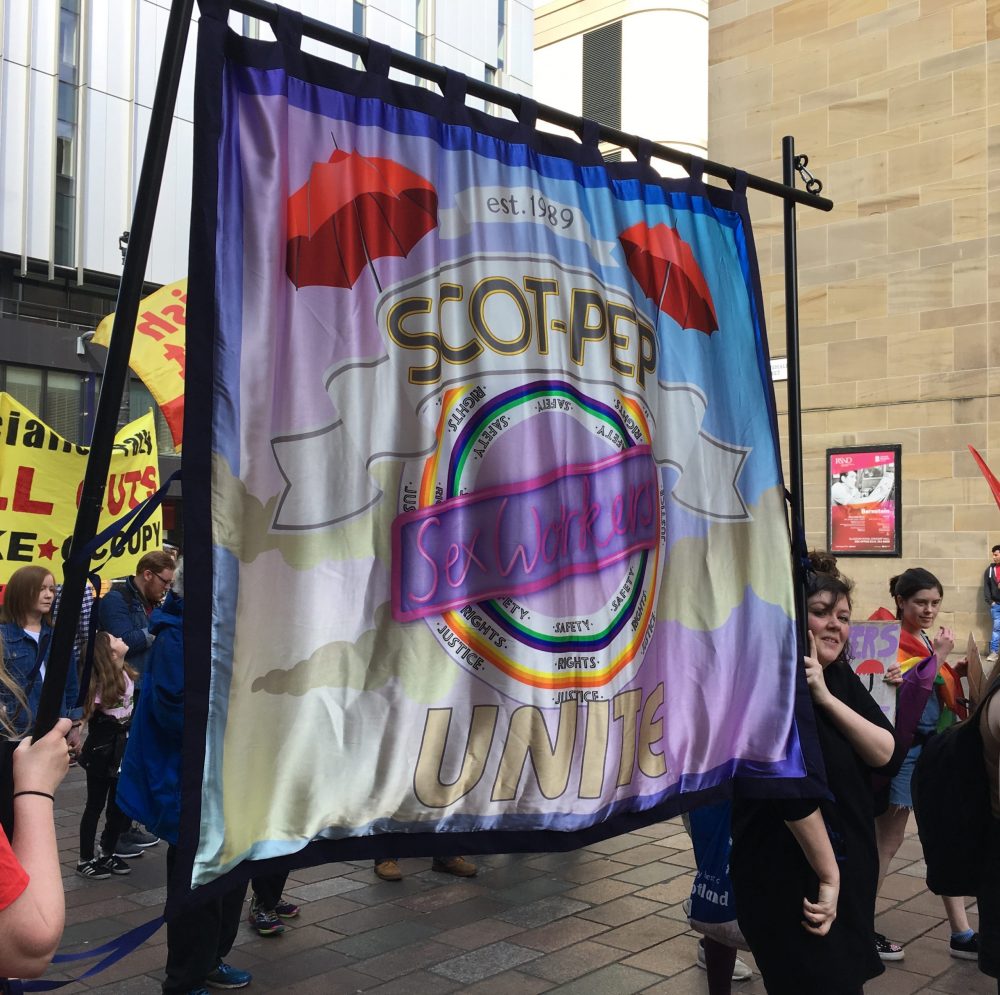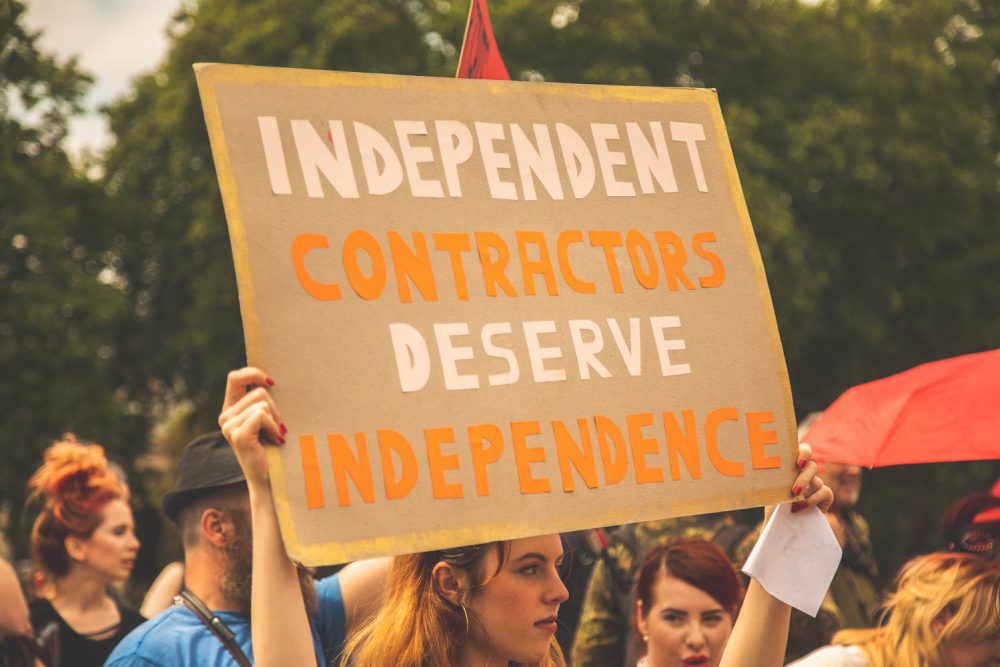
What we do
Scot-Pep is grassroots and sex worker-led. Our actions and priorities are set collectively by current and former sex workers within the organisation. We do lots of things:
We campaign for laws that would make sex workers safer, we make sure sex workers voices are heard in debates about sex work policy, we produce resources, we meet with charities, women’s organisations and others involved in social justice movements to talk about how sex workers can be better supported, we create space for sex workers to meet and build collective power, and we put on events such as film screenings and discussions.
Hookers Against Hardship
We’re campaigning to raise awareness of the specific experiences of sex workers during, and because of, the cost of living crisis; to help to alleviate sex workers’ financial hardship by asking people to donate to sex worker-led organisations which support sex workers in crisis; and to lobby our elected politicians to combat the poverty, criminalisation and danger faced by sex workers.
Our demands of the government are: rent controls for the whole of the UK, and a moratorium on evictions; amnesty from arrest and fines for sex workers; access to benefits for all, at a living wage; and an end to benefit sanctions.
Read more here
Scot-pep meetings
Scot-pep currently meets monthly, alternating between Glasgow and Edinburgh. 2022 meetings are open to sex workers and allies, on the below dates:
Thursday 29 September at NUMbrella Lane (Glasgow)
Saturday 29 October at Crew (Cockburn Street, Edinburgh)
Thursday 24 November at NUMbrella Lane (Glasgow)

Decriminalisation
Scot-Pep, along with the global sex worker rights movement, and organisations including Amnesty International and the World Health Organization, advocates for the full decriminalisation of sex work. This includes the selling and purchasing of sexual services, and the facilitation, management and organisation of sex work (sometimes called ‘third parties’).
In Scotland and the rest of the UK, current partial criminalisation makes sex work dangerous. The act of selling sex itself is not illegal, however, “associated activities” such as soliciting and brothel keeping are criminalised. This means that workers cannot work in pairs or groups for safety, and that those who do work in managed brothels have no access to workers’ rights. For street-based and outdoor workers, soliciting in a public place and kerb-crawling (for clients) are both offences. This means there is less time for workers to engage in screening, negotiate terms and safety measures such as informing others of their whereabouts.
Criminalisation not only makes it harder to access workers’ rights and to work safely, it also acts as a barrier to accessing justice and other forms of support. Workers are often unwilling or unable to report when they have experienced violence at the hands of a client for fear that they themselves will be criminalised.
Without the threat of criminal sanctions, sex workers’ workplaces would be subject to employment law, meaning they could exercise their rights as workers against exploitative bosses and poor working conditions. Workers would also be able to work together and practise more safety measures, as well as accessing support, leading to safer working, safer sex practices and better outcomes for workers.
Fundamentally, full decriminalisation of sex work increases sex workers’ power in interactions with clients, bosses, landlords and law enforcement.
